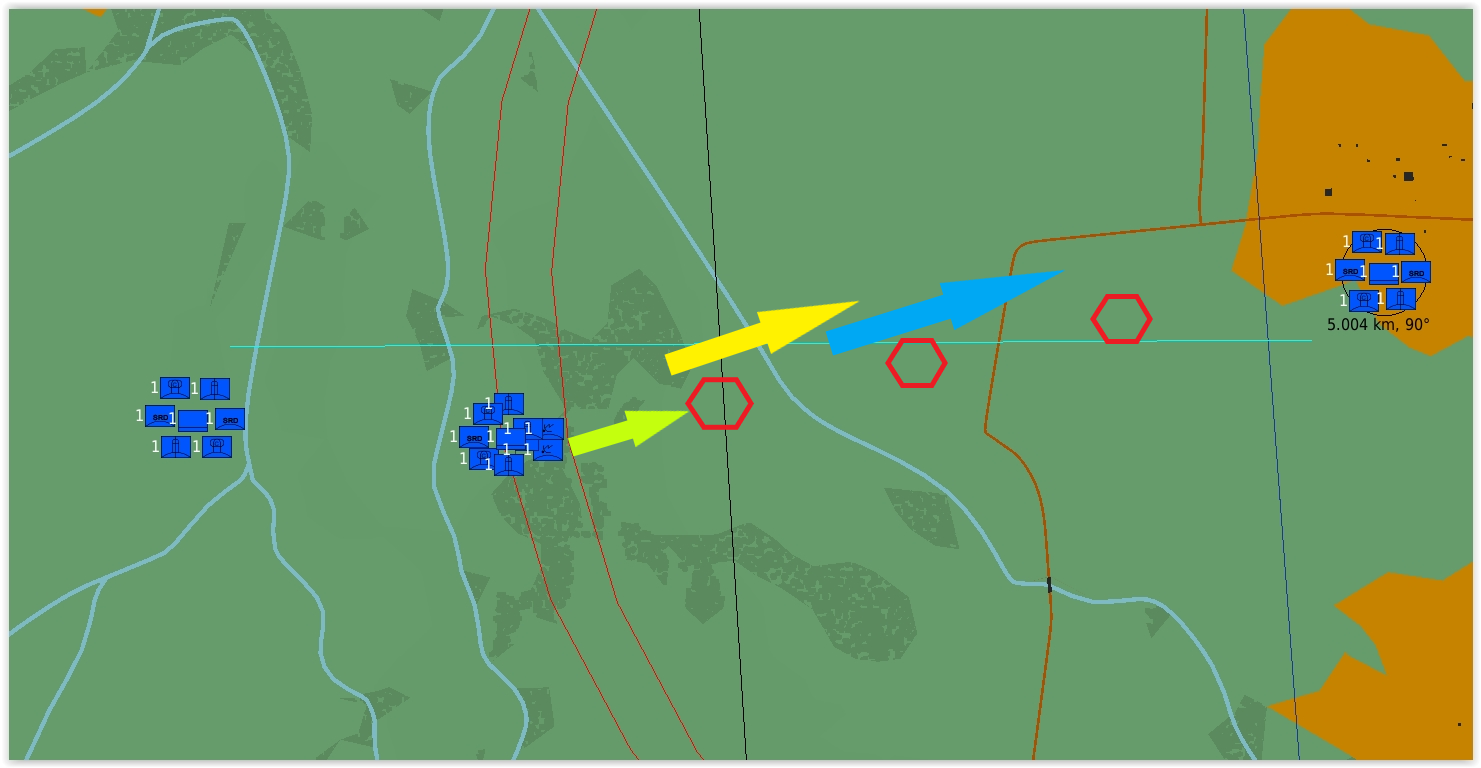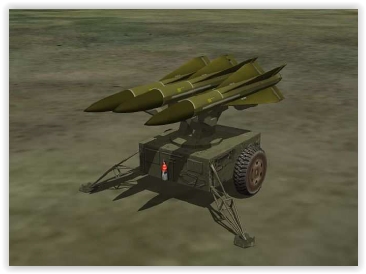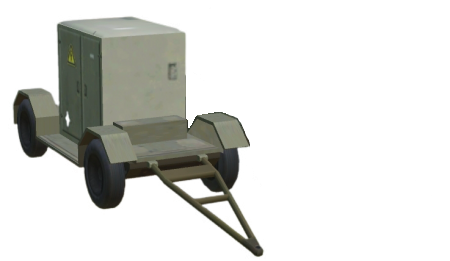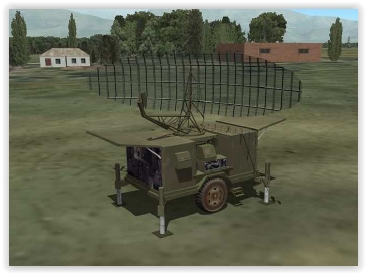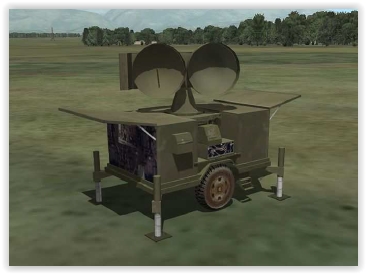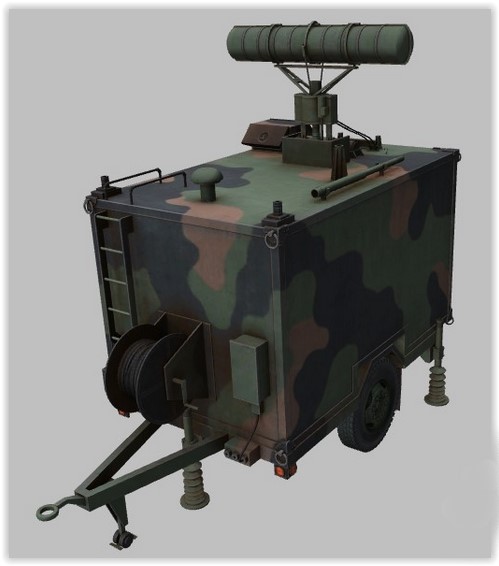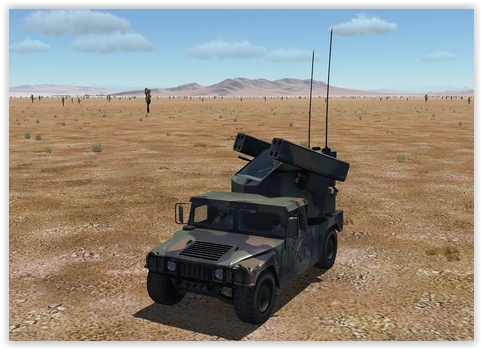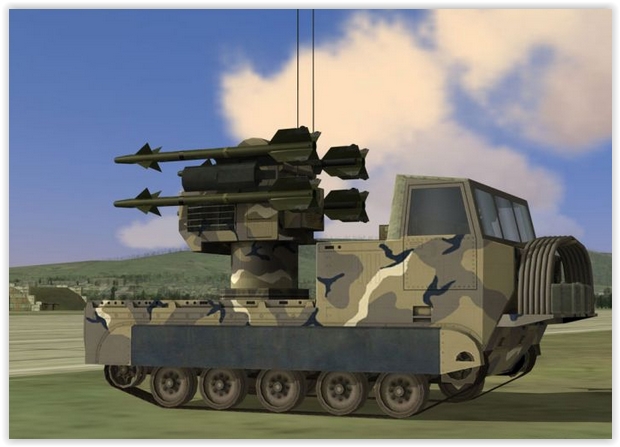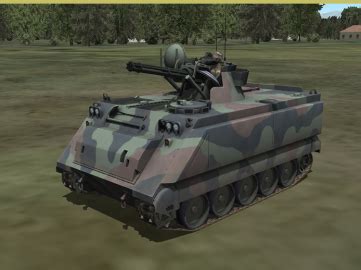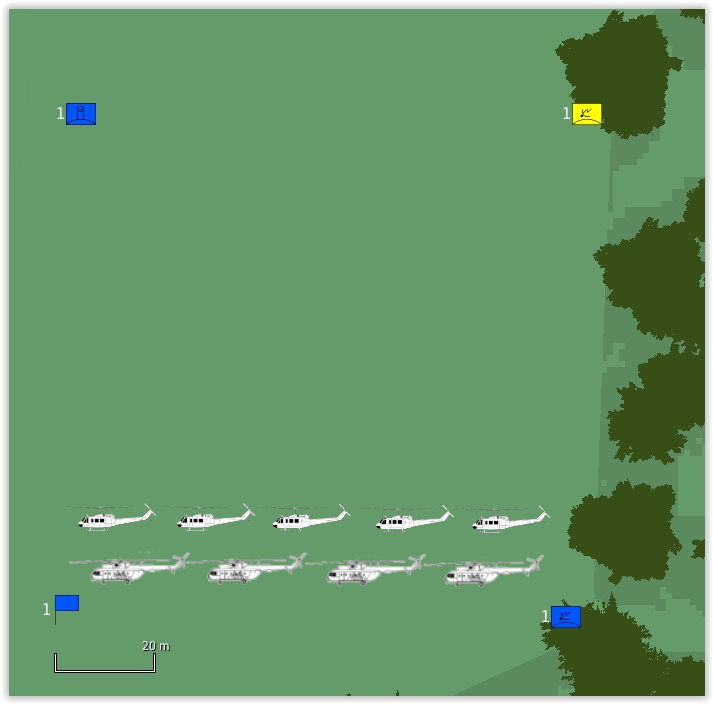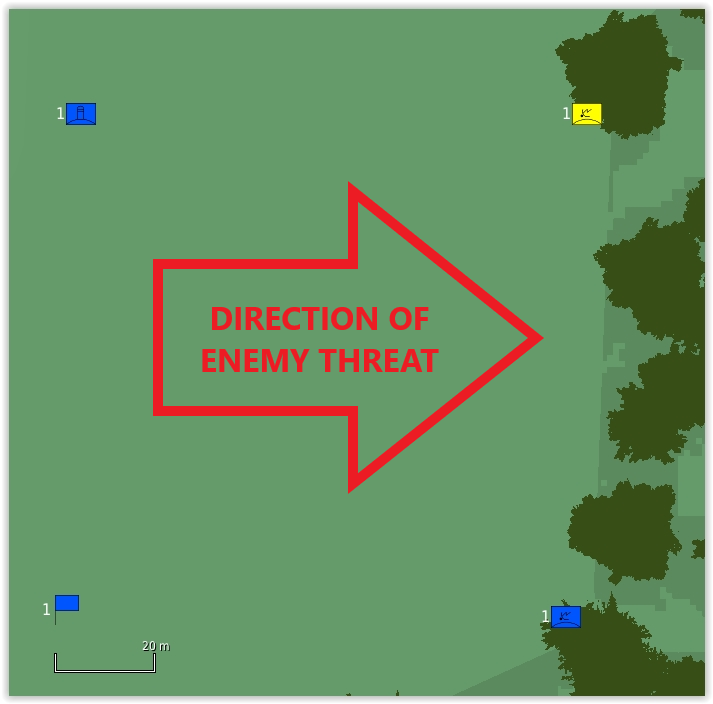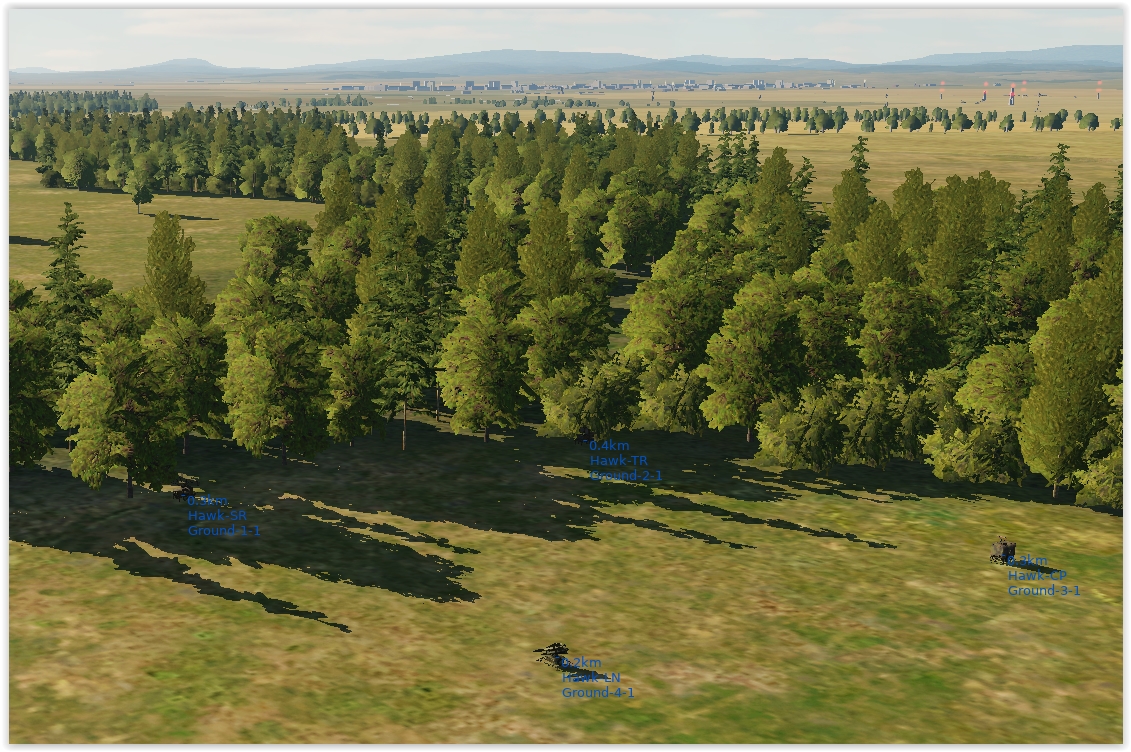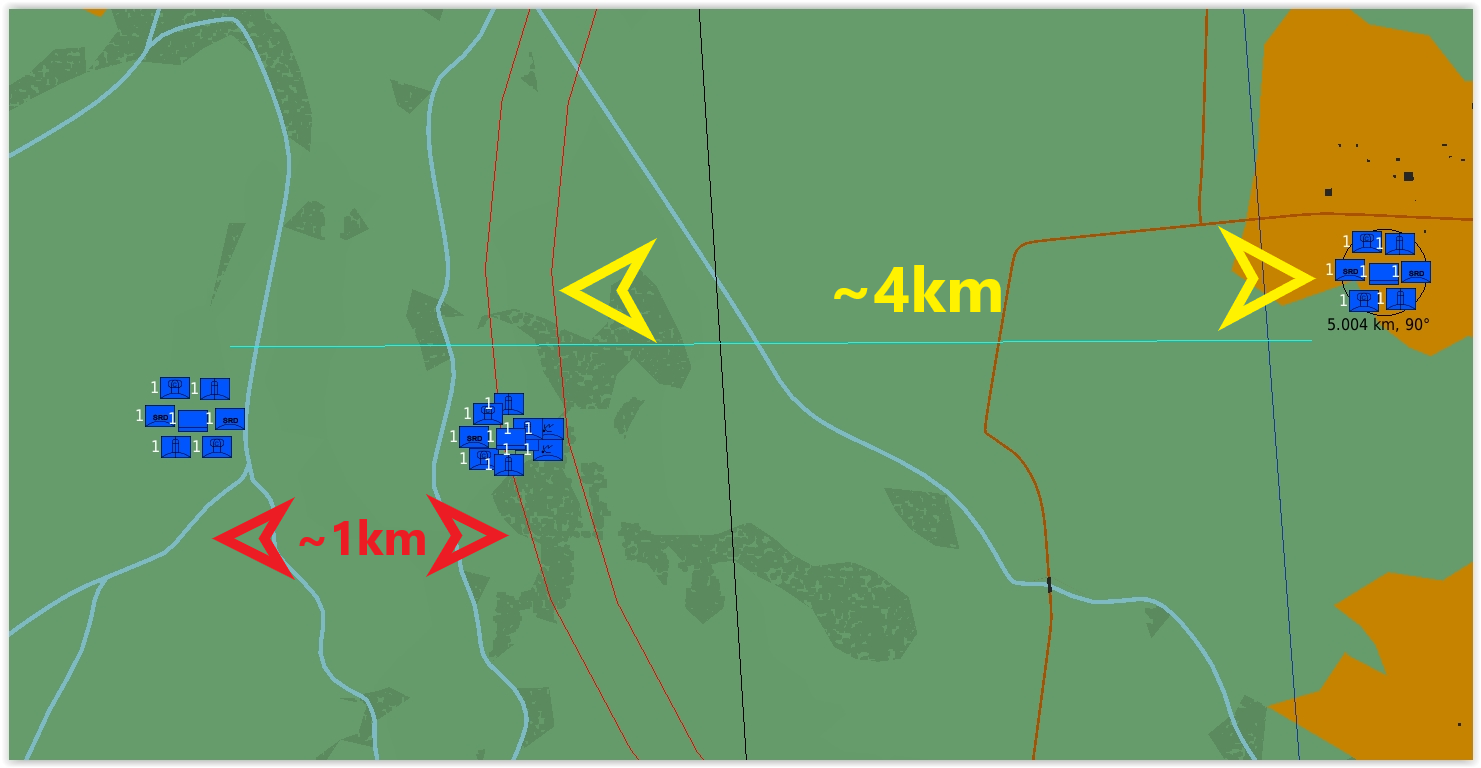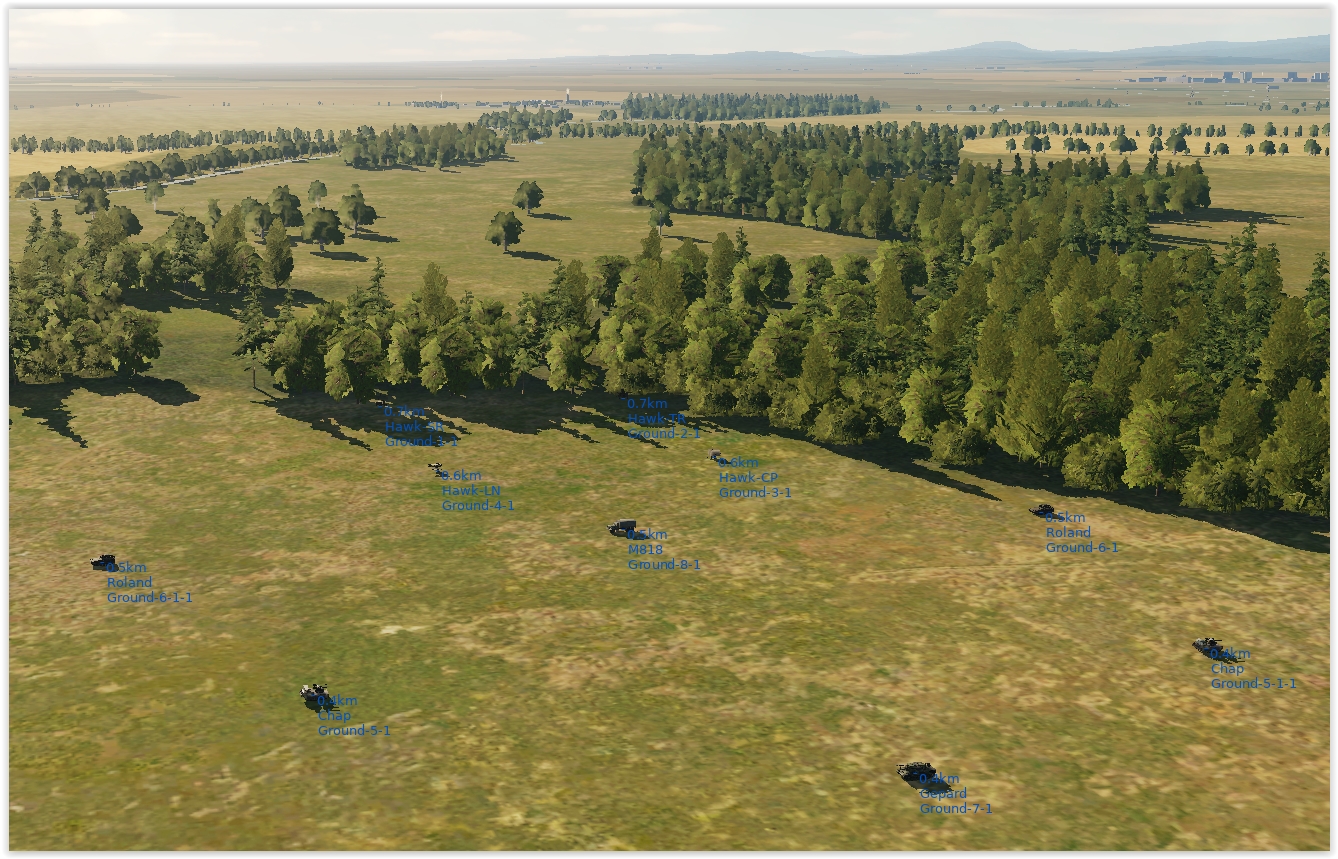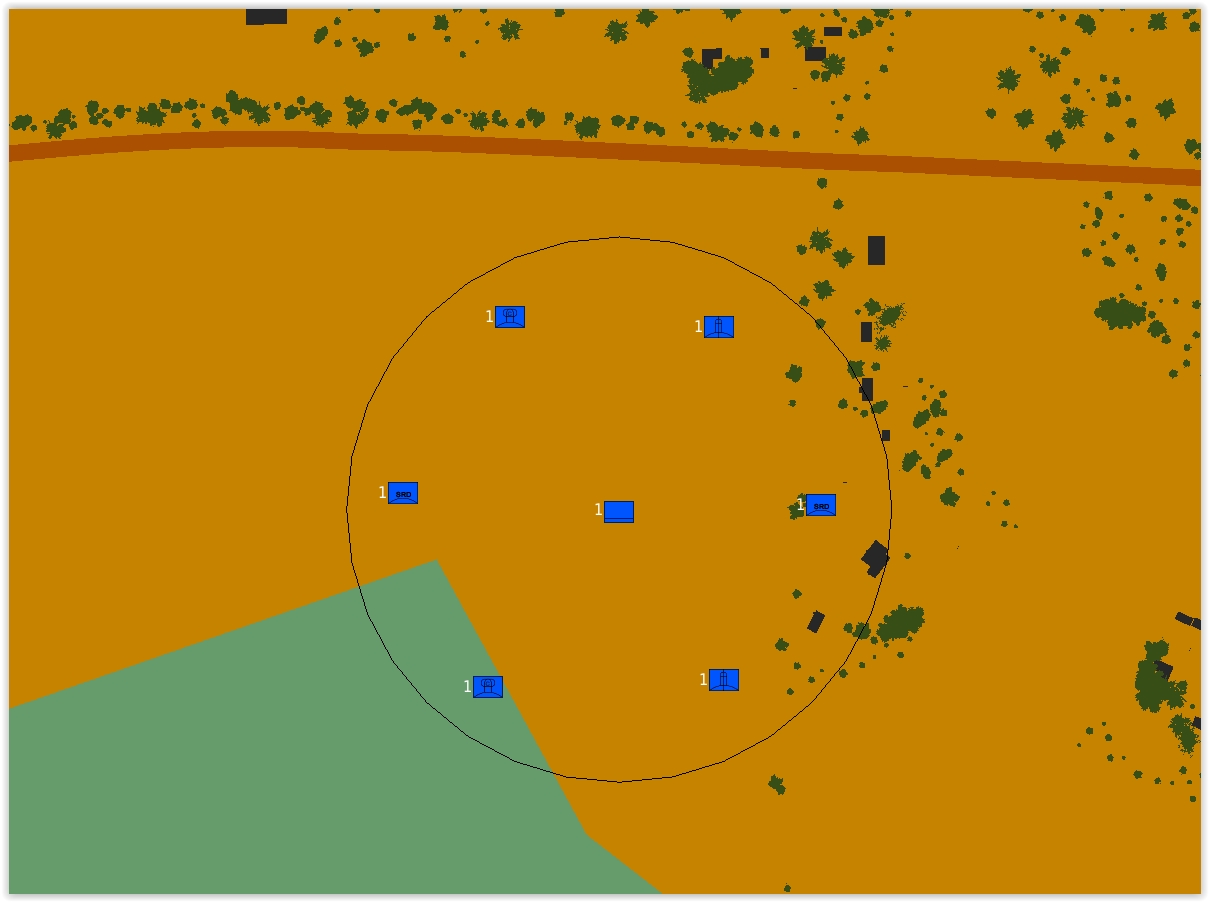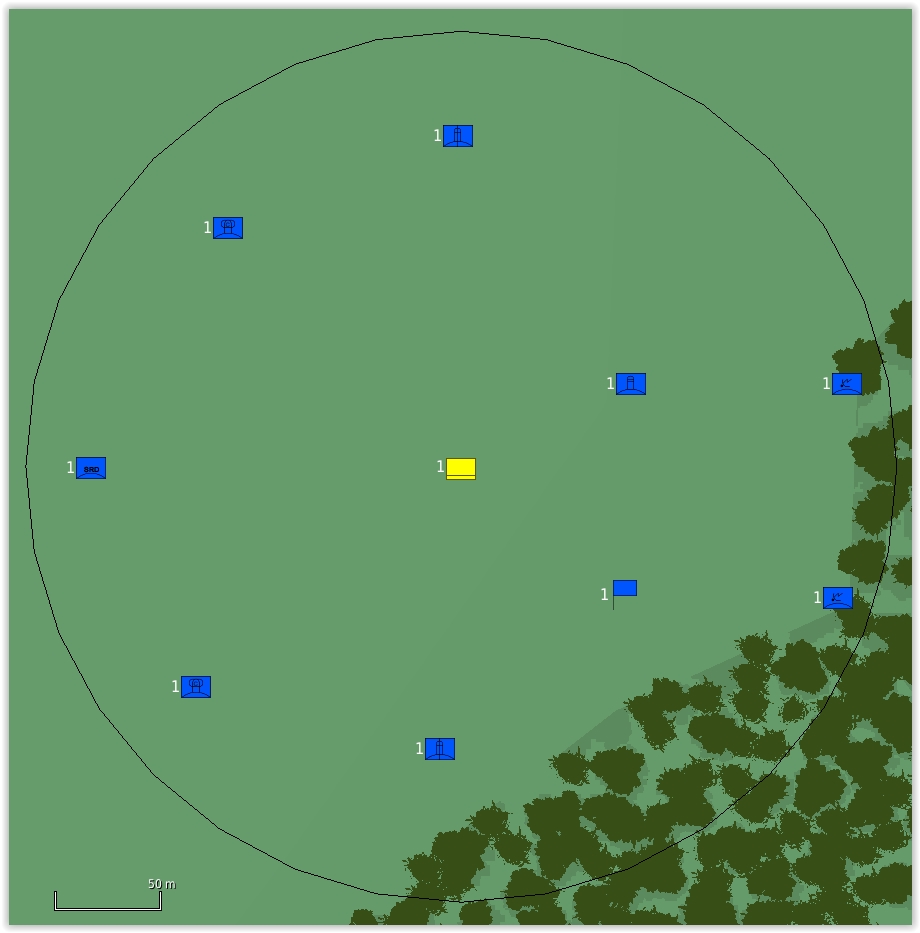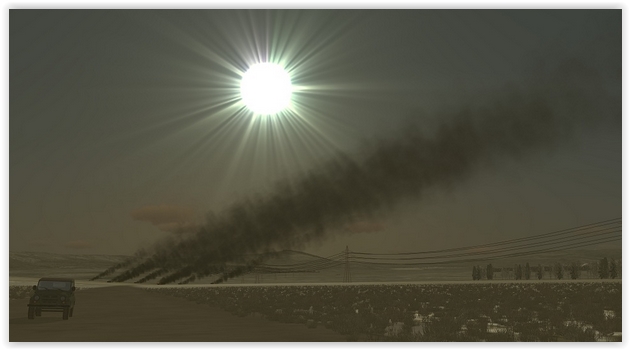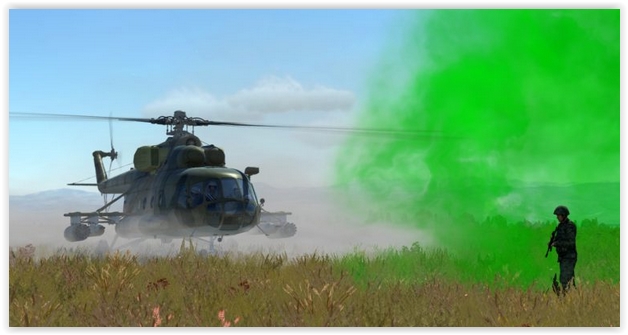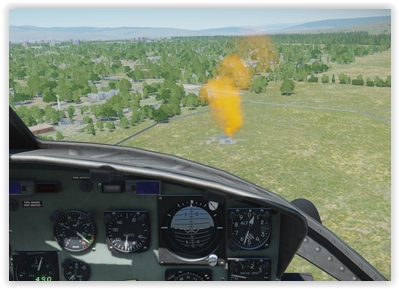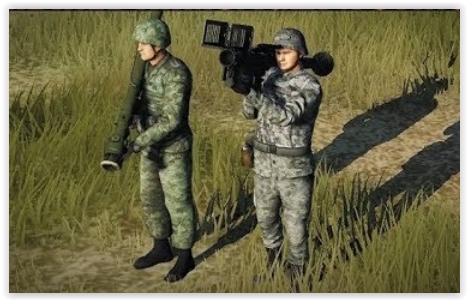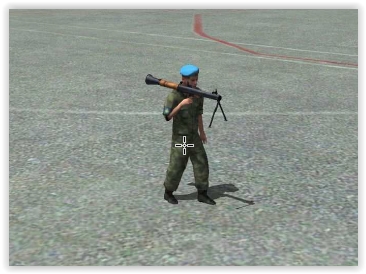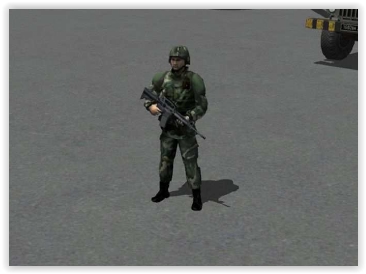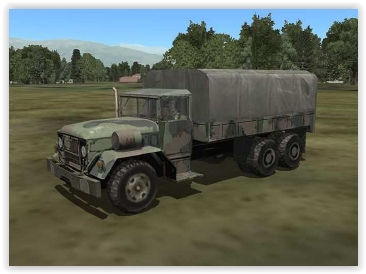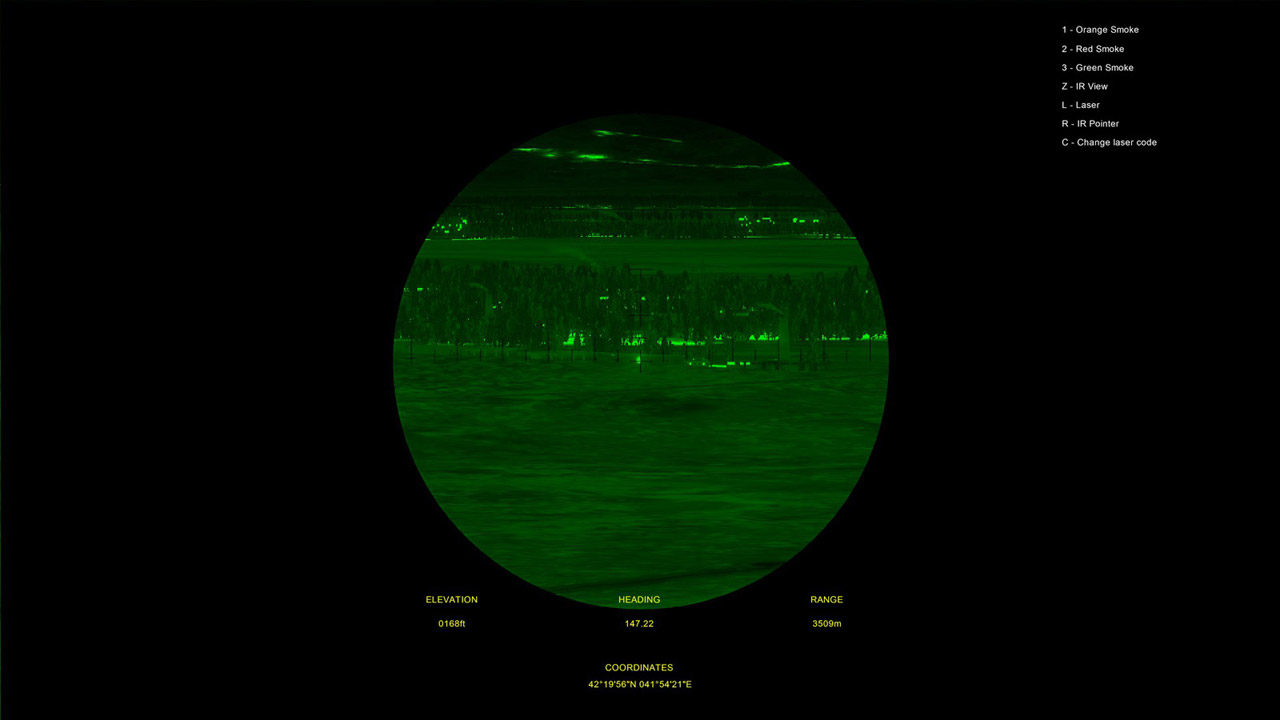Difference between revisions of "Helicopter Operations (Logistics)"
m (→Strategies) |
m (→Technique #1 (HAWK spacing) - Judging distance using aircraft length) |
||
| (191 intermediate revisions by the same user not shown) | |||
| Line 1: | Line 1: | ||
| − | + | <center>{{#widget:AdSense | |
| − | == | + | |name=Hoggitwiki header |
| + | |width = 728px | ||
| + | |height = 90px | ||
| + | }}</center> | ||
| + | __TOC__ | ||
| + | =Rotary-Wing Operations - Logistical Support= | ||
| + | ''Participation in the Hoggit Servers in a Helo is not all about shwacking armour. | ||
| − | + | Logistical support in a UH-1/Mi-8 will win the campaign quicker than you might think. | |
| − | |||
| − | == | + | Even when an enemy airport is occupied with SAM's & AAA, it is possible to sneek in (very low level) |
| − | ===Air | + | to deploy troops and ground units/SAMs to take over an airfield.'' |
| + | |||
| + | Note: please remember this is a game. as realistically as some might like to play it, | ||
| + | it is only a simulation & there are specific real-world elements that are either not modelled, | ||
| + | given lip service to or just impossible to include. | ||
| + | Therefore, the few "strategies &/or tactics" indicated here are not even close to real-world, or set in stone | ||
| + | (if you find it doesn't work for you, try something different & please pass that information on to others) | ||
| + | These are simply what has been discovered over thousands of hours of 'game-play' by multitudes of players | ||
| + | of a wide spectrum of experience, who have graciously passed on their knowledge. | ||
| + | |||
| + | Logistics in Georgia at War (GAW) refers to the use of helicopters and aircraft to deploy troops and vehicles. | ||
| + | This is crucial in the ground battle, as it's the only way that blue forces can secure bases to operate out of and place ground units. | ||
| + | These features are accomplished on the server using Complete Troops and Logistics scripts (CTLD) and accessible under the radio menu <code>F10. Other</code>. | ||
| + | Check out the original CTLD source here [https://github.com/ciribob/DCS-CTLD GitHub page], or to see the GAW server's implementation check out the [https://github.com/Hoggit/Georgia-At-War/blob/master/ctld.lua GAW GitHub page here]. | ||
| + | For a general helo ops guide here's a Reddit [https://www.reddit.com/r/hoggit/comments/bhmve0/gaw_helo_ops/ post] | ||
| + | |||
| + | |||
| + | Note: Whilst the basics of the Logistics menus in CTLD are the same on all the Hoggit servers, | ||
| + | this page will continuously refer to 'Georgia at War' or 'GAW', | ||
| + | but take it to refer to any 'theatre X at war' hoggit server. | ||
| + | X= Persian Gulf / Syria / etc. (at War Hoggit server) | ||
| + | |||
| + | |||
| + | ==Commands== | ||
| + | ---- | ||
| + | There are a variety of commands associated with CTLD nested in many layers. | ||
| + | It's a good idea to create macros to commonly used ones or to make dropping troops or JTACs under fire faster. VoiceAttack is even more useful when trying to drop crates or troops while in a hover. | ||
| + | * The CTLD Home menu | ||
| + | * Drop | ||
| + | * Unpack | ||
| + | * Deploy troops | ||
| + | * The AA Crates | ||
| + | |||
| + | Players can mark their current position with colored smoke that lasts 5 minutes. | ||
| + | This can show other's where not to shoot or where to drop off crates if a another helo is helping. | ||
| + | |||
| + | ==Available Aircraft== | ||
| + | === Players === | ||
| + | *Mi-8TV2 | ||
| + | *UH-1H Huey | ||
| + | *Yak-52 | ||
| + | *TF-51D | ||
| + | *C-101 | ||
| + | |||
| + | ===AI=== | ||
| + | *C-130 | ||
| + | *UH-60 Blackhawk | ||
| + | *CH-47 Chinook | ||
| + | |||
| + | ==A.I. Logistics == | ||
| + | ---- | ||
| + | ===Capturing Bases=== | ||
| + | The F10 radio menu has the option to send security forces to bases around the map (FARPs and Airbases). | ||
| + | *Deploying security forces spawns one of several aircraft depending on the destination. | ||
| + | **FARPs always get a helicopter | ||
| + | **Airfields usually use a C-130. | ||
| + | |||
| + | *The aircraft spawn at a nearby friendly base which is sometimes up to 20 minutes away. | ||
| + | **There is a 1.5 minute cool down between deploying security forces to anywhere. | ||
| + | *When the aircraft lands, it will despawn and a small security force will spawn around the touchdown point. | ||
| + | **This force consists of trucks providing fuel and ammo, and ground units to defend the base from Mi-26s trying to recapturing the base. | ||
| + | *Players may realize they cannot refuel or rearm because of a unit missing from an attack. | ||
| + | **A security force must be redeployed to replace it, or a server restart will respawn the force with full health. | ||
| + | *The redfor AI commander taps into CTLD to send Mi-26 to recapture bases. | ||
| + | |||
| + | *Green smoke will spawn to mark the troop pickup zone and is a sign that CTLD is allowed at that base. | ||
| + | |||
| + | ===Security Force Components=== | ||
| + | *'''Ammo Trucks''' | ||
| + | *'''Fuel Trucks''' | ||
| + | *'''M163 Vulcan''' | ||
| + | *'''M48 Chaparral''' | ||
| + | *'''MG Humvee''' | ||
| + | Although the security force is intended to prevent enemies from recapturing the base, it is strongly encouraged for players to spawn at the base and use CTLD to supplement their offensive capability. | ||
| + | |||
| + | ===Bugs=== | ||
| + | *Upon landing, an aircraft will despawn, but security forces do not spawn in. Players have to wait until server restart. | ||
| + | *AI units don't detect each other. Security forces do not shoot down an mi-26 and it is allowed to recapture the base. Upon server restart the base may be completely reset, or it will stay blufor when enemies don't respawn. | ||
| + | |||
| + | == Player Logistics == | ||
| + | ---- | ||
| + | Backed by CTLD, the main way to deploy blue forces (and the only way to deploy air defenses) is by Blue players flying CTLD crates and troops to the deployment zones. | ||
| + | |||
| + | ===Troops=== | ||
| + | Players can carry troops available as a number of presets visible under through <code> F10 -> CTLD -> Troop Transport -> Load </code> | ||
| + | |||
| + | <big>Infantry Group Presets for Pickup</big> | ||
| + | {| class="wikitable" | ||
| + | |- | ||
| + | ! Group !! Infantry !! Machine Gun !! RPG-16 !! Stinger !! 2B11 Mortar | ||
| + | |- | ||
| + | | Standard|| 6 || 2 || 2 || _ || _ | ||
| + | |- | ||
| + | | Anti-Air || 2 || _ || _ || 3 || _ | ||
| + | |- | ||
| + | | Anti-Tank || 2 || _ || 6 || _ || _ | ||
| + | |- | ||
| + | | Mortar || _ || _ || _ || _ || 6 | ||
| + | |} | ||
| + | |||
| + | ====Pickup/Extraction==== | ||
| + | <code> F10 -> CTLD -> Troop Transport -> Pickup/Extract </code> | ||
| + | For new troops, players must be in proximity of a troop pickup zone marked by green smoke at available bases. | ||
| + | Only one preset of troops can be loaded onto the aircraft. | ||
| + | |||
| + | Players need within 300m of troops to extract them. | ||
| + | |||
| + | ====Drop Off==== | ||
| + | Troops can be dropped off when landed, and they will spawn in a circle around the player. If this is done too close to a pickup zone, it will simply restock the infantry back into the logistics zone. | ||
| + | |||
| + | Troops can also be dropped from up to an 18m hover to emulate a fast-rope insertion. | ||
| + | |||
| + | ====ManPADs==== | ||
| + | ... ''ALWAYS'' carry anti-air troops with you. | ||
| + | |||
| + | Friendly air units (CAP) are rarely ALL on comms or co-ordinating with GCI (sad reality - despite so much co-op play) | ||
| + | lacking human GCI / CAP units on comms & reliable support, helis will often have to fend for themselves | ||
| + | pushing out away from airports / FARPs & any established ADS umbrella coverage is prone to draw the AI air threats. | ||
| + | as soon as you see a fast mover inbound, get down to tree level, slow down & seek cover behind a building | ||
| + | (cities are great for this) & deploy your AA troops & wait. | ||
| + | |||
| + | Quite a few surprise kills with manpads can be achieved, whilst avoiding AI air threats. | ||
| + | once eliminated, pickup the ground troops & continue on your way. | ||
| + | |||
| + | If you're operating with a few helis co-op & are doing long hops to place a new FOB or ADS, each player can land & drop their anti-air troops (leap-frogging) along the route (outside of larger ADS umbrella coverage) to help protect your transit legs. | ||
| + | |||
| + | [[File:manpad_leapfrog.png|400px]] | ||
| + | |||
| + | This is an effective tactic especially if multiple turnarounds are required, providing you with a 'transit tunnel' of manpads at least to act as some minimal protection from AI air threats. | ||
| + | |||
| + | (wont stop you being shot down by trigger happy "friendly" air units though!). | ||
| + | |||
| + | ====Troop Behavior==== | ||
| + | Troops will search 4km for the nearest enemy unit similar to how the JTAC searches. | ||
| + | They will then rally in a single file line towards it and attack other units long the way. | ||
| + | Their presence in proximity of a base also counts as capturing it. | ||
| + | This will allow players to spawn at the base, but the absence of other logistic vehicles prevents players from refueling and rearming. | ||
| + | Troops are not persistent between server restarts. To persistently capture a base, use security forces, or setup a persistent unit through crates such as a JTAC Humvee or Avenger. | ||
| + | |||
| + | ===Crates and Vehicles=== | ||
| + | ---- | ||
| + | *Players can spawn ground units using crates. | ||
| + | *Some vehicles require multiple crates to be dropped in proximity of each other. | ||
| + | *Crates can be requested anywhere. There was usually a zone centered within 0.25nmi around HEMTT TFFT logistics truck found near the green smoke. | ||
| + | |||
| + | Sling loading is simulated by spawning and despawning crates based on the player's position rather than simulating the physics and rendering a rope. | ||
| + | |||
| + | To pickup a crate a player must hover over it for 5 consecutive seconds inside a volume that is 7.5-20m above the ground and within 15m ground displacement. In other words, a cylindrical 12.5 meter tall cylinder with a 15m radius. This is high enough to develop a vortex ring state that destroys the helicopter. | ||
| + | |||
| + | *Unpacking a crate will despawn the crate(s )and spawn the corresponding unit. | ||
| + | *Crates need to be picked up at least once to be allowed to unpack. | ||
| + | *Be sure unpacking as vehicles cannot be repacked to be moved with a helicopter. | ||
| + | *The Combined Arms DLC would be required to move vehicles by driving them around if possible. | ||
| + | |||
| + | <code>F10 -> CTLD -> CTLD Commands -> Unpack</code> | ||
| + | |||
| + | # Request the crate of the unit which will spawn about 50m in front of you. There is a 60 second cool down between spawning crates | ||
| + | # Pickup the crate by hovering over it for 5 consecutive seconds. A crate must be picked up before it can be unpacked. | ||
| + | # Drop the crate anywhere using <code>F10 -> CTLD -> CTLD Commands -> Drop crate</code>. Dropping in the air spawn the crate below you. Dropping the crate from too high will destroy it. When landed, dropping the crate with spawn it 50m in front of you. | ||
| + | # Unpack the crate(s). They will despawn and be replaced with the relevant unit. This means that crates of multi-crate units need to be close to each other to unpack. For HAWK sites, the farthest a crate can be from any other is ~0.25nmi as measured. | ||
| + | |||
| + | ====Ground Units==== | ||
| + | * '''JTAC Humvee''' | ||
| + | * '''TOW Humvee''' | ||
| + | * '''MG (Machine Gun) Humvee''' | ||
| + | * '''M1 Abrams''' | ||
| + | * '''Artillery''' | ||
| + | * '''Mortar''' | ||
| + | |||
| + | The TOW Humvee will continue to engage targets within range. It is not persistent between server restarts. | ||
| + | |||
| + | Other than the JTAC and Humvee, most of these are only useful when a player has the DCS Combined Arms module to be able to control them. | ||
| + | Operate vehicles by doing <code>Menu -> Select Role -> JTAC/Operator</code> or | ||
| + | move them using the commander map. | ||
| + | |||
| + | ====JTAC Humvee==== | ||
| + | The JTAC Humvee is persistent across server restarts, but there is a limit of 10 JTAC units. | ||
| + | |||
| + | *The JTAC Humvee marks units with red smoke and lases it for aircraft to employ laser guided munitions. | ||
| + | *The unit lases offset starting 2m up with a 10km line of sight which excludes objects such as trees and buildings. | ||
| + | *Therefore, JTACs on top of buildings or on sides of mountains provide the best lines of site. *Alternatively, a helo pilot may fly through a nearby city or forest and drop a JTAC inside it. | ||
| + | *The JTAC will be able to lase through the objects while the pilot have cover from enemy fire. | ||
| + | *The laser code will be broadcast server wide upon each new lase, or it can be found under JTAC or CTLD Status in the radio menu. | ||
| + | *It is good practice to mark the laser code next to the unit on the F10 map. This mark will last until server restart even if the player logs off. | ||
| + | |||
| + | ====Anti Air Units==== | ||
| + | ---- | ||
| + | =====Radar Emitters===== | ||
| + | =====SPAAG Gepard===== | ||
| + | {| class="wikitable" | ||
| + | |+'''SPAAG - Gepard''' | ||
| + | |- | ||
| + | |[[file:GEPARD.jpg|150px]] | ||
| + | |[[file:double_crate.png|100px]] | ||
| + | |Self-Propelled Anti-Air Gun - Gepards are a 2 crate unit but far more effective, these will provide some decent AAA cover up close. | ||
| + | |} | ||
| + | |||
| + | =====HAWK===== | ||
| + | {| class="wikitable" | ||
| + | |+'''HAWK System''' | ||
| + | |- | ||
| + | |[[file:HAWK_LN.jpg|150px]] | ||
| + | |'''HAWK Launcher''' | ||
| + | |[[file:single_crate.png|100px]] | ||
| + | |Ensure that the launcher unit is placed such that it is clear of obstructions so that Missile can launch unimpeded. | ||
| + | |- | ||
| + | |[[file:HAWK_SR.jpg|150px]] | ||
| + | |'''HAWK Search Radar''' | ||
| + | |[[file:single_crate.png|100px]] | ||
| + | |Placement of the Search Radar can be behind a tree line to potentially evade incoming anti-radiation missiles. | ||
| + | |- | ||
| + | |[[file:HAWK_TR.jpg|150px]] | ||
| + | |'''HAWK Track Radar''' | ||
| + | |[[file:single_crate.png|100px]] | ||
| + | |Placement of the Track Radar should also be behind a tree line to potentially evade incoming anti-radiation missiles. | ||
| + | |- | ||
| + | |[[file:HAWK_PCP.jpg|100px]] | ||
| + | |'''HAWK PCP''' | ||
| + | |[[file:single_crate.png|100px]] | ||
| + | |Placement of the PCP can be behind out in the open as long as it is within 100m proximity to the other components | ||
| + | |} | ||
| + | |||
| + | =====Roland===== | ||
| + | {| class="wikitable" | ||
| + | |+'''Roland''' | ||
| + | |- | ||
| + | |[[file:Roland_ADS.jpg|150px]] | ||
| + | |[[file:triple_crate.png|150px]] | ||
| + | |Vulcans are cheap & cheerful single crate units, they have a limited range however, but are fun to watch operating. | ||
| + | |} | ||
| + | |||
| + | ====Non-Radar Emitters==== | ||
| + | {| class="wikitable" | ||
| + | |+'''Non-Radar Emitters''' | ||
| + | |- | ||
| + | |[[file:AVENGER.jpg|150px]] | ||
| + | |'''M1097 Avenger''' | ||
| + | |[[file:single_crate.png|100px]] | ||
| + | |(launches FIM-92 Stinger missiles), whilst only a single crate unit, is not very effective for the effort, limited range | ||
| + | you are much better off much more effective Chaparral. | ||
| + | (also deploying a squad of Anti-Air troops whilst deploying a different SAM is almost the same effect). | ||
| + | |- | ||
| + | |[[file:CHAPARRAL.jpg|150px]] | ||
| + | |'''M48 Chaparral''' | ||
| + | |[[file:single_crate.png|100px]] | ||
| + | |(modified AIM9 based) is also a single crate unit, which has a much better range & no radar emittor to draw unwanted attention & is all in all a much more effective option for the same amount of effort. | ||
| + | |- | ||
| + | |[[file:VULCAN.jpg|150px]] | ||
| + | |'''M163 Vulcan''' | ||
| + | |[[file:single_crate.png|100px]] | ||
| + | |Vulcans are cheap & cheerful single crate units, they have a limited range however, but are fun to watch operating. | ||
| + | |} | ||
| + | |||
| + | ====HAWK Sites==== | ||
| + | *HAWK sites need 4 unique crates and each crate of the HAWK site will span its corresponding structure when unpacked. | ||
| + | *Crates must be within ~0.25nmi (460m) to count towards the same site, and there is a limit of 20 operable HAWK sites. | ||
| + | *An inoperable HAWK site will not count towards the limit and can be replaced if a HAWK site is set up elsewhere. | ||
| + | |||
| + | ====Strategies==== | ||
| + | |||
| + | =====Placement considerations===== | ||
| + | *The Track Radar and Search Radar attract anti-radiation missiles so they should be placed away from other HAWK components, other units, or player spawn points to avoid collateral damage. | ||
| + | |||
| + | (HAWK launchers don't friendly fire, so they're are just a harmless nuisance if accidentally put too close to a runway or a landing pad. | ||
| + | |||
| + | Even if a HAWK site is inoperable, it will respawn with full health after a server restart if at least one component of it still exists. | ||
| − | + | It is recommended to space out the crates of a HAWK site so that an anti-radiation missile does not take out the whole site in one hit. | |
| − | |||
| − | + | In fact, since there's a 60 second cool down time between requesting crates, and you're hovering anyway to pick it up there's no good reason to cluster crates together. You might as well fly a little ways out. | |
| − | + | Ideally, you are finished dropping a crate by the time you are ready to request a new one. | |
| − | + | In short, one needs to keep the following things in mind when setting up a HAWK site: | |
| − | the | + | * The track and search radar attract anti-radiation missiles and need to be placed with the most consideration |
| + | * Crates should be spaced out to maximize the chances that at least one HAWK component survives a until server restart | ||
| + | * There is a 60 second cool down time between requesting crates | ||
| + | *The crates spawn 50m in front of the player. | ||
| − | ==== | + | ====deploying crates / unit placement==== |
Don't just dump all the crates on top of each other | Don't just dump all the crates on top of each other | ||
| − | this will create a volatile target that when impacted will destroy most if not all the components rather than a single entity like a track | + | this will create a volatile target that when impacted will destroy most if not all the components rather than a single entity like a track radar/search radar system, these are the 'missle magnets'. |
| + | |||
| + | ====HAWK system layout==== | ||
When unpacking the crates, try placing them as far apart as possible(allowable) | When unpacking the crates, try placing them as far apart as possible(allowable) | ||
which from ciribobs readme; | which from ciribobs readme; | ||
| − | "To build a HAWK (or BUK) AA system you will need to slingload all 3 parts - Launcher, Track Radar and Search Radar - and drop the crates within 100m of each other." Note: there are 4 crates to the HAWK system ( | + | "To build a HAWK (or BUK) AA system you will need to slingload all 3 parts - Launcher, Track Radar and Search Radar - and drop the crates within 100m of each other." |
| − | + | ||
| − | [[File: | + | Note: there are 4 crates to the HAWK system: |
| + | |||
| + | All 4 components crates must be placed before the HAWK system can be deployed. | ||
| + | Take some care in the placement of each component to make the most of a high (effort) cost system | ||
| + | |||
| + | =====Technique #1 (HAWK spacing) - Judging distance using aircraft length===== | ||
| + | |||
| + | 100m = ~5 huey lengths / ~4 mi-8 lengths | ||
| + | |||
| + | |||
| + | [[File:HAWK_DIM.JPG|300px]] | ||
| + | |||
| + | if you place the crates too far apart, they will NOT deploy so you will have to move them a bit closer, | ||
| + | |||
| + | this might require a little trial & error, but better to have them well spaced out than on top of each other. | ||
| + | |||
| + | =====Technique #2 (HAWK spacing) - Leap Frogging Setup===== | ||
| + | ''There are several reasons why you need to fly forward, and this method combines that with crate spawning behavior to space out a HAWK site with as little effort as possible. A player will get a feel for how far enough they should be. Go with the flow.'' | ||
| + | |||
| + | ''In the F10 map draw a 0.25nmi (460m) line as a guide. Spacing 4 crates along this line meets the criteria mentioned terms of minimum spacing, time eaten up, and placement. An anti-radiation missile that destroys one antenna should leave the others alive if not completely unscathed. To remember which way to face, set your heading indicator or pick a distant landmark to keep facing. This line could be oriented perpendicular to the direction enemies are most likely to come from. Otherwise a missile can overshoot an antenna and hit something along the line. It would also allow planes to strafe down the line of units without deviating from the way they already came from.'' | ||
| + | |||
| + | ''When you find a spot to start:'' | ||
| + | # ''Land and request a HAWK Launcher crate.'' | ||
| + | # ''Do a rolling takeoff, and hover to pick it up.'' | ||
| + | # ''Do a rolling landing, stop, and drop the crate.'' | ||
| + | # ''Do a rolling takeoff, or "leap" over the launcher crate in front of you, and then do a rolling landing. If you had requested the crate right away, CTLD would not know which crate you'd want to pick up when they're clipped into each other. '' | ||
| + | # ''Request a HAWK PCP. Notice that the crate is 50m in front of you. Then take into account how much distance you gained from the crate behind you by doing a rolling landing. Even if there is still a cool down, most of it is gone because you were busy flying and adding some space between the crates.'' | ||
| + | # ''Takeoff and pickup the PCP crate | ||
| + | # ''Do a rolling landing and drop the HAWK PCP crate. A rolling landing is natural because it avoids vortex ring state while descending fast. This also avoids tail strikes from trying to pitching up. This process adds even more displacement.'' | ||
| + | # ''Hop over the PCP and do the same with the Track radar and then the Search radar.'' | ||
| + | # ''Using the unpack command once will replace all the crates with their respective unit.'' | ||
| + | |||
| + | ''Bonus: Spawn a M-818 crate and fly back to set it up near the launcher.'' | ||
| + | |||
| + | ===Air Defence Systems (ADS)=== | ||
| + | |||
| + | On hoggit servers (in DCS), when placing Air Defence Systems (ADS), try not to bunch the units up | ||
| + | this ensures that if any SEAD action occurs, you're only likely to lose a single unit/entity & not 1/2 dozen units | ||
| + | |||
| + | Some units are only single crate & can quickly be replaced, however these single crate units are usually the less effective (hence 'cheaper') units with shorter ranges or lower hit ratios. | ||
| + | |||
| + | Units that require 2, 3 & 4 crates to assemble provide more optimal cover & nominally more effective use of your time & effort to set up. | ||
| + | |||
| + | Note: Please keep in mind that the techniques outlined below are not real-world methods, | ||
| + | but adaptations for DCS world the methods used have been developed or adopted from personal experience | ||
| + | or mentoring by others whom have learnt the hard way on what works & what doesn't. | ||
| + | Take it with a grain of salt. This is what works has been determined to do so consistantly. | ||
====Priorities==== | ====Priorities==== | ||
| − | The priority when working on air defences | + | The priority when working on air defences are very straight forward: |
| − | your own aicraft safety first, | + | #your own aicraft safety first, |
| − | then the asset (airfield/FARP) | + | #then the asset (airfield/FARP) |
| − | then providing a safety umbrella for friendly air units | + | #then providing a safety umbrella for friendly air units |
| + | |||
hence the priority of work normally undertaken should be something similar to this | hence the priority of work normally undertaken should be something similar to this | ||
#Anti- Air troops, scatter them about at the extremities of your area of work or in a line along your ingress/egress routes | #Anti- Air troops, scatter them about at the extremities of your area of work or in a line along your ingress/egress routes | ||
| Line 45: | Line 366: | ||
#Gepard | #Gepard | ||
| − | ==== | + | ====playing with "DCS-isms"==== |
| − | + | ||
One mans "strategies" are another mans "cheats" | One mans "strategies" are another mans "cheats" | ||
| − | + | #some trees are collidable | |
| − | + | #SEAD targets the radar emitters (anti-radiation missiles) | |
| − | + | #DSC doesnt obscure radar detection through trees.... | |
| − | which leads us to | + | |
| + | which leads us to: | ||
| − | + | =====Tactical HAWK radar placement strategies in DCS===== | |
Place your hawk site to maximise its footprint to reduce/limit unit damage. | Place your hawk site to maximise its footprint to reduce/limit unit damage. | ||
| − | + | ||
| + | Orientate the hawk site so that the radar systems are close to/hard up against a tree line/forest. | ||
| + | |||
| + | [[File:HAWK_ME.PNG|300px]] | ||
| + | |||
PCP & lunchers can be exposed in open ground (launchers will need clearance of obstacles). | PCP & lunchers can be exposed in open ground (launchers will need clearance of obstacles). | ||
| + | [[File:HAWK_site.JPG|400px]] | ||
| + | |||
| + | ====Roland Placement to support HAWK sites==== | ||
| + | Rolands are effective defence against Kh-58U but not so the kh-25PMU, (Gee a tunguska would be nice to have.....) | ||
| + | however they are more effective when placed correctly | ||
| + | |||
| + | When placed together & against multiple launchers, they will both fire on the first inbound missile but neither will fire on the second... | ||
| + | |||
| + | |||
| + | Optimal placement of rolands in combination with an established hawk site should provide: | ||
| + | 1x roland slightly to the rear (~1km) | ||
| + | |||
| + | [[File:ADS_distance.png|400px]] | ||
| + | |||
| + | With another (remote ADS site including at least) 1x roland well forward of the hawk site (~4km) | ||
| + | |||
| + | |||
| + | [[File:ADS.JPG|400px]] | ||
| + | |||
| + | It has been found that these ADS/AAA units placed in supporting these positions with 2 of each type as a template are very effective remote Air Defence System.; | ||
| + | *2x Roland | ||
| + | *2x Gepard | ||
| + | *2x Chaparral | ||
| + | *1x Ammo truck | ||
| − | =====Ammo | + | (start with 1x of each then keep adding to it to complete a set). |
| + | |||
| + | [[File:remote_ADS.JPG|400px]] | ||
| + | |||
| + | These remotely located ADS sites will require their own ammo truck in order to provide continuous support | ||
| + | as per the radar strategy for the HAWK sites, it is possible to position the Rolands & Gepards with some cover from treelines or forests to potenitally minimize effectiveness of the AI's SEAD oeprations. | ||
| + | (don't get too close though as the Roland wont be able to launch adequately) | ||
| + | |||
| + | =====SAM Ring===== | ||
| + | ''Using the leap frogging technique for spacing, several HAWK sites can be centered on one M-818 truck. The outer ring of radar emitters spreads out anti-radiation missile impacts, and a player can sit in the middle tending to the sites with HAWK repair crates in safety.'' | ||
| + | |||
| + | ====HAWK Maintenance==== | ||
| + | =====Repair===== | ||
| + | *A damaged or dead component cannot be repaired individually with a similar crate. | ||
| + | *Instead the whole site is repaired by unpacking one HAWK repair crate next to it. | ||
| + | *This will also rearm the HAWK site. | ||
| + | |||
| + | =====Rearming===== | ||
| + | *A HAWK Launcher can be manually rearmed by unpacking a HAWK Launcher crate nearby. | ||
| + | *At least one M-818 Ammo Truck has to be nearby to automatically rearm the HAWK launchers. | ||
| + | *Although behavior is inconsistent, one truck should be able to rearm several HAWK sites, but no one has determined if multiple trucks speed up rearming. | ||
| + | |||
| + | =====Suuply Truck===== | ||
These ADS sytems dont run on 'Hollywood magazines' (but the ammo trucks do) | These ADS sytems dont run on 'Hollywood magazines' (but the ammo trucks do) | ||
| − | each SAM/ | + | each SAM/AAA will run out of ordinace at some point, unless an ammo truck is placed in proximity enough to enable resupply |
[[File:HAWK_spt.JPG|300px]] | [[File:HAWK_spt.JPG|300px]] | ||
| − | === | + | Note how the singular ammo truck, can support the adequately spaced HAWK site as well as surrounding Chaparral, Roland & Gepard systems all well spaced to prevent colatteral unit damage |
| − | + | ||
| − | + | ===Other Strategies Regarding Placement and Flying=== | |
| + | Strategies involving unit placement are a trade off between line of sight and cover, or offense and defense. | ||
| + | *A HAWK site on high ground gives enemy aircraft little opportunity to occlude line of sight, but is the radars are naked to anti-radiation missiles. | ||
| + | *A Gepard among buildings or trees is protected from long range anti-radiation missiles, and the enemy is forced to attack from above and in range. | ||
| + | |||
| + | Using these strategies requires a pilot to know their helicopter well. | ||
| + | *It is easy to strike a rotor on wires, poles, and tight passages. | ||
| + | *If the pilot enters vortex ring state, there may be no room to recover. | ||
| + | |||
| + | Crates can be dropped directly below during a hover, and this can be used to place a crate on top of a buildings like skyscrapers. | ||
| + | *Landing on the ground is close enough to unpack the crate. | ||
| + | *An alternative method is to land right up to a building and drop the crate. | ||
| + | *The crate will clip through and spawn inside the building. | ||
| + | |||
| + | Unpacking it snaps its position onto the roof directly on top of it. | ||
| + | |||
| + | If the crate is not far enough inside the building, the vehicle will spawn on the wall like a spider before updating its position down on the ground. | ||
| + | |||
| + | Because the crates spawn 50m in front of the helicopter, one can land right up against a tree line to bury a unit within. | ||
| − | + | Although the crate can be dropped from above, the player would still need to be able to land nearby to unpack it. | |
| + | This is useful for hiding Gepards and Avengers inside of trees. | ||
| + | Similarly, a line of trees or buildings prevents planes from being able to see AA until they are directly over it and vulnerable unable to fire back. | ||
| − | + | ===Forward Operating Base (FOB)=== | |
| − | + | Three small crates are needed to build a FOB which creates a zone granting access to all of CTLDs features, but is marked with a mortar. | |
| + | *It is not a FARP, and is not persistent across server restarts. | ||
| + | *This is a powerful mechanics if enough players are available. | ||
| + | For example, players can fly out 20 minutes and setup a FOB. | ||
| + | *The return on this investment is being able to operate from the FOB for crates to build multiple HAWK sites using multiple short trips. | ||
| + | *Without the FOB feature, they would have to make repeat the 20 minute trips to complete several HAWK sites far from a CTLD zone. | ||
| − | + | ====Wind Direction==== | |
| − | + | Watch the smoke in game, industrial smoke stacks, house chimneys, FOB's & smoke grenades. | |
| + | These will all provide suitable wind direction indicators - use them. | ||
| − | [[File: | + | [[File:smoke_trail.jpg|300px]] |
| − | + | You should always attempt to land into wind in a helicopter especially in an mi8 | |
| − | |||
| − | + | (which has a tendancy to fall out of the sky on approach if you so much as change your mind) | |
| − | |||
| − | |||
| − | + | [[File:mi8_LZ.jpg|400px]] | |
| − | |||
| − | + | So keep a mental note on the wind direction & fly your approaches & departures accordingly. | |
| − | |||
| − | |||
| − | |||
| − | & | ||
| − | + | =====Smoke grenades===== | |
| − | + | Smoke grenades have a relatively short life span, keep this in mind when placing units at a distance away from your FOB, | |
| + | you may want to drop a smoke grenade prior to returning to the FOB to make it easier to return again. | ||
| − | + | [[File:SMOKE_GRENADE.jpg]] | |
| − | |||
| − | + | When you return to the FOB & once landed (into wind) turn back towards the smoke signal to re-orientate & pick out a landmark &/or set your compass carrot, in case the smoke expires whilst you're busy aquiring your next cargo to haul. | |
====Navigation==== | ====Navigation==== | ||
| − | When flying out away from you base - set your compass carrot to simplify your return route navigation. (compass carrot will allow you to fly out & | + | When flying out away from you base - set your compass carrot to simplify your return route navigation. (compass carrot will allow you to fly out & return via a reciprocal heading, much easier/quicker than smoke & if you have voice attack too, it's too easy to just say ''"drop <colour> smoke"'' even whilst your picking up). |
| + | |||
| + | Note: remember when flying the Huey to always check your RMI to your standby compass, | ||
| + | unlike the Mi8, it has to be aligned manually, if you do not check this beforehand, | ||
| + | you might end up "geographically embarassed". | ||
| + | |||
| + | =====Struts Tutorial===== | ||
| + | |||
| + | https://www.slideshare.net/Strut1/operation-of-the-diss-15-doppler | ||
| + | |||
| + | |||
| + | =====Mudspike Tutorial===== | ||
| + | |||
| + | '''HOW TO USE THE DOPPLER NAVIGATOR IN DCS: MI-8MTV2''' | ||
| + | |||
| + | https://www.mudspike.com/how-to-use-the-doppler-navigator-in-dcs-mi-8mtv2/ | ||
| + | |||
| + | ===== DCS Ruler ===== | ||
| + | |||
| + | #select ruler form menu bar | ||
| + | #zoom the map in to as close to your aircraft as possible (or from a designated landmark you intend to depart from /flyover | ||
| + | #right click to set start point | ||
| + | #zoom out to locate destination | ||
| + | #then zoom into destination as close as possible and place cursor over destination (LZ) | ||
| + | #right click to select destination | ||
| + | #look at menu bar to obtain direction (GRID) and distance | ||
| + | |||
| + | |||
| + | =====Magnetic Variation===== | ||
| + | Grid(from the F10 map) to Magnetic(aircraft compass) | ||
| + | |||
| + | Depending on the map you are flying, the magnetic variation will be different; | ||
| + | |||
| + | *'''Caucasus;''' subtract '''6''' degrees to convert from Grid to Magnetic | ||
| + | *:e.g. set your heading carat to the heading (F10 map bearing less 6 degress for magnetic variation) | ||
| + | |||
| + | |||
| + | *'''Nevada'''; subtract '''12''' degrees to convert from Grid to Magnetic | ||
| + | *:e.g. set your heading carat to the heading (F10 map bearing less 12 degress for magnetic variation) | ||
| + | |||
| + | |||
| + | *'''Persion Gulf:''' subtract '''2''' degrees to convert from Grid to Magnetic | ||
| + | *:e.g. set your heading carat to the heading (F10 map bearing less 2 degress for magnetic variation) | ||
| + | |||
| + | |||
| + | ===== Time / Distance Calculation ===== | ||
| + | |||
| + | based on estimated cruise speed, determine time to target: | ||
| + | |||
| + | Time = Distance / Velocity x 60 | ||
| + | |||
| + | Note: there is an excellent function in Voice Attack that allows you to perform instant Time/Distance Calculations | ||
| − | + | ===== Doppler Navigation ===== | |
| − | + | ||
| − | + | '''if in Mi8- use Doppler(co-pilot panel)''' | |
| + | |||
| + | #set heading | ||
| + | |||
| + | #set distance Aft (to provide a countdown to zero as you approach the destination) | ||
| + | |||
| + | #enable doppler once overhead start point | ||
| + | |||
| + | #fly smooth and level as much as possible to avoid doppler failure which could result in navigation inaccuracies | ||
| + | |||
| + | Note: Doppler instrument panel lighting is located behind the co-pilot | ||
| + | and is accessible from the flight engineers seat (3) | ||
| − | ====Radio beacons==== | + | =====Radio beacons===== |
Radio beacons are better used when performing longer distance unit placement (beyond directly visible / line of sight) | Radio beacons are better used when performing longer distance unit placement (beyond directly visible / line of sight) | ||
this will require you to be familiar with your radios in order to set the frequency for homing. | this will require you to be familiar with your radios in order to set the frequency for homing. | ||
| Line 122: | Line 574: | ||
===Ground Units=== | ===Ground Units=== | ||
| + | |||
====Troop Transport==== | ====Troop Transport==== | ||
| + | |||
| + | {| class="wikitable" | ||
| + | |+'''Troop Types''' | ||
| + | |- | ||
| + | |[[file:MANPADS.jpg|150px]] | ||
| + | |'''ManPADS''' | ||
| + | |'''Man P'''ortable '''A'''ir '''D'''efence '''S'''ystems - Stingers(& Iglas) come under ''Troop Transport > Anti-Air troops'', are by far the most effective in the Hoggit (xAW) servers, they provide close range air defence to the helicopter forces whether around bases, in transit or as a temporary measure at new FOB's whilst more robust/permanent ADS are deployed. | ||
| + | |- | ||
| + | |[[file:ANTI_ARMR.jpg|150px]] | ||
| + | |'''Anti-Armour troops''' | ||
| + | |can be utilised to ambush or provide blocking forces against enemy convoys, but with no active convoys to interfere with, they have limited application in the hoggit servers. | ||
| + | |- | ||
| + | |[[file:GI_M4.jpg|150px]] | ||
| + | |'''General Infantry troops''' | ||
| + | |are most effective against enemy infantry/anti-armour/anri-air troops, but are particularly susceptible to armour, light vehicles & air units & as such, again, have limited applicability in the hoggit servers. | ||
| + | |} | ||
| + | |||
| + | ====Ammo Trucks==== | ||
| + | |||
| + | {| class="wikitable" | ||
| + | |+'''M818 Supply Truck''' | ||
| + | |- | ||
| + | |[[file:M818_supply.jpg|150px]] | ||
| + | |[[file:single_crate.png|150px]] | ||
| + | |The humble M818 Supply truck is an essential component to keeping any/all ADS or other ground units provided with adequate ordinance. Without them your deployed ground units will be down to using harsh language on the enemy. | ||
| + | |} | ||
| + | |||
| + | |||
| + | Make sure to consider the placement of your ground units in proximity to a supply truck to avoid running out or ammo. | ||
| + | If a supply truck or ground unit is out of range of each other, a CA user in a JTAC slot can occupy & relocate either the ground unit or supply truck (whichever is most optimal) to achieve maximum coverage. | ||
| + | |||
| + | ====Combined Arms / JTAC==== | ||
| + | The JTAC positions in the server lobby will allow players to participate by taking over ground units such as artillery, SAMs & AAA, or tanks & other vehicles. | ||
| + | |||
| + | [[File:JTAC.jpg|400px]] | ||
| + | |||
| + | Provided of course that they have the '''Combined Arms''' module installed. | ||
| + | |||
| + | This will allow CA players to occupy ground units, take on otehr enemy ground (&/or air) units, & sieze/capture objectives (Airfields & FARPs). | ||
| + | |||
====Armour==== | ====Armour==== | ||
| + | CA players can occupy artillery units such as the M1A1 Abrams & create a collosal amount of carnage to enemy ground units of all description. | ||
| + | |||
| + | Even to the odd aircraft if its low & slow enough. (as well as silly enough to pass in front of the 120mm cannon). | ||
| + | |||
====Artillery==== | ====Artillery==== | ||
| − | = | + | |
| + | {| class="wikitable" | ||
| + | |+'''M270 MLRS''' | ||
| + | |- | ||
| + | |[[file:MLRS.jpg|150px]] | ||
| + | |[[file:double_crate.png|150px]] | ||
| + | |CA players can occupy artillery units such as the MLRS & rain down a world of hurt on static AI ground units from a distance... | ||
| + | without so much as risking a grazed elbow. | ||
| + | |} | ||
Latest revision as of 04:03, 24 May 2021
Contents
- 1 Rotary-Wing Operations - Logistical Support
- 1.1 Commands
- 1.2 Available Aircraft
- 1.3 A.I. Logistics
- 1.4 Player Logistics
- 1.4.1 Troops
- 1.4.2 Crates and Vehicles
- 1.4.3 Air Defence Systems (ADS)
- 1.4.4 Other Strategies Regarding Placement and Flying
- 1.4.5 Forward Operating Base (FOB)
- 1.4.6 Ground Units
Rotary-Wing Operations - Logistical Support
Participation in the Hoggit Servers in a Helo is not all about shwacking armour.
Logistical support in a UH-1/Mi-8 will win the campaign quicker than you might think.
Even when an enemy airport is occupied with SAM's & AAA, it is possible to sneek in (very low level) to deploy troops and ground units/SAMs to take over an airfield.
Note: please remember this is a game. as realistically as some might like to play it, it is only a simulation & there are specific real-world elements that are either not modelled, given lip service to or just impossible to include. Therefore, the few "strategies &/or tactics" indicated here are not even close to real-world, or set in stone (if you find it doesn't work for you, try something different & please pass that information on to others) These are simply what has been discovered over thousands of hours of 'game-play' by multitudes of players of a wide spectrum of experience, who have graciously passed on their knowledge.
Logistics in Georgia at War (GAW) refers to the use of helicopters and aircraft to deploy troops and vehicles.
This is crucial in the ground battle, as it's the only way that blue forces can secure bases to operate out of and place ground units.
These features are accomplished on the server using Complete Troops and Logistics scripts (CTLD) and accessible under the radio menu F10. Other.
Check out the original CTLD source here GitHub page, or to see the GAW server's implementation check out the GAW GitHub page here.
For a general helo ops guide here's a Reddit post
Note: Whilst the basics of the Logistics menus in CTLD are the same on all the Hoggit servers, this page will continuously refer to 'Georgia at War' or 'GAW', but take it to refer to any 'theatre X at war' hoggit server. X= Persian Gulf / Syria / etc. (at War Hoggit server)
Commands
There are a variety of commands associated with CTLD nested in many layers. It's a good idea to create macros to commonly used ones or to make dropping troops or JTACs under fire faster. VoiceAttack is even more useful when trying to drop crates or troops while in a hover.
- The CTLD Home menu
- Drop
- Unpack
- Deploy troops
- The AA Crates
Players can mark their current position with colored smoke that lasts 5 minutes. This can show other's where not to shoot or where to drop off crates if a another helo is helping.
Available Aircraft
Players
- Mi-8TV2
- UH-1H Huey
- Yak-52
- TF-51D
- C-101
AI
- C-130
- UH-60 Blackhawk
- CH-47 Chinook
A.I. Logistics
Capturing Bases
The F10 radio menu has the option to send security forces to bases around the map (FARPs and Airbases).
- Deploying security forces spawns one of several aircraft depending on the destination.
- FARPs always get a helicopter
- Airfields usually use a C-130.
- The aircraft spawn at a nearby friendly base which is sometimes up to 20 minutes away.
- There is a 1.5 minute cool down between deploying security forces to anywhere.
- When the aircraft lands, it will despawn and a small security force will spawn around the touchdown point.
- This force consists of trucks providing fuel and ammo, and ground units to defend the base from Mi-26s trying to recapturing the base.
- Players may realize they cannot refuel or rearm because of a unit missing from an attack.
- A security force must be redeployed to replace it, or a server restart will respawn the force with full health.
- The redfor AI commander taps into CTLD to send Mi-26 to recapture bases.
- Green smoke will spawn to mark the troop pickup zone and is a sign that CTLD is allowed at that base.
Security Force Components
- Ammo Trucks
- Fuel Trucks
- M163 Vulcan
- M48 Chaparral
- MG Humvee
Although the security force is intended to prevent enemies from recapturing the base, it is strongly encouraged for players to spawn at the base and use CTLD to supplement their offensive capability.
Bugs
- Upon landing, an aircraft will despawn, but security forces do not spawn in. Players have to wait until server restart.
- AI units don't detect each other. Security forces do not shoot down an mi-26 and it is allowed to recapture the base. Upon server restart the base may be completely reset, or it will stay blufor when enemies don't respawn.
Player Logistics
Backed by CTLD, the main way to deploy blue forces (and the only way to deploy air defenses) is by Blue players flying CTLD crates and troops to the deployment zones.
Troops
Players can carry troops available as a number of presets visible under through F10 -> CTLD -> Troop Transport -> Load
Infantry Group Presets for Pickup
| Group | Infantry | Machine Gun | RPG-16 | Stinger | 2B11 Mortar |
|---|---|---|---|---|---|
| Standard | 6 | 2 | 2 | _ | _ |
| Anti-Air | 2 | _ | _ | 3 | _ |
| Anti-Tank | 2 | _ | 6 | _ | _ |
| Mortar | _ | _ | _ | _ | 6 |
Pickup/Extraction
F10 -> CTLD -> Troop Transport -> Pickup/Extract
For new troops, players must be in proximity of a troop pickup zone marked by green smoke at available bases.
Only one preset of troops can be loaded onto the aircraft.
Players need within 300m of troops to extract them.
Drop Off
Troops can be dropped off when landed, and they will spawn in a circle around the player. If this is done too close to a pickup zone, it will simply restock the infantry back into the logistics zone.
Troops can also be dropped from up to an 18m hover to emulate a fast-rope insertion.
ManPADs
... ALWAYS carry anti-air troops with you.
Friendly air units (CAP) are rarely ALL on comms or co-ordinating with GCI (sad reality - despite so much co-op play) lacking human GCI / CAP units on comms & reliable support, helis will often have to fend for themselves pushing out away from airports / FARPs & any established ADS umbrella coverage is prone to draw the AI air threats. as soon as you see a fast mover inbound, get down to tree level, slow down & seek cover behind a building (cities are great for this) & deploy your AA troops & wait.
Quite a few surprise kills with manpads can be achieved, whilst avoiding AI air threats. once eliminated, pickup the ground troops & continue on your way.
If you're operating with a few helis co-op & are doing long hops to place a new FOB or ADS, each player can land & drop their anti-air troops (leap-frogging) along the route (outside of larger ADS umbrella coverage) to help protect your transit legs.
This is an effective tactic especially if multiple turnarounds are required, providing you with a 'transit tunnel' of manpads at least to act as some minimal protection from AI air threats.
(wont stop you being shot down by trigger happy "friendly" air units though!).
Troop Behavior
Troops will search 4km for the nearest enemy unit similar to how the JTAC searches. They will then rally in a single file line towards it and attack other units long the way. Their presence in proximity of a base also counts as capturing it. This will allow players to spawn at the base, but the absence of other logistic vehicles prevents players from refueling and rearming. Troops are not persistent between server restarts. To persistently capture a base, use security forces, or setup a persistent unit through crates such as a JTAC Humvee or Avenger.
Crates and Vehicles
- Players can spawn ground units using crates.
- Some vehicles require multiple crates to be dropped in proximity of each other.
- Crates can be requested anywhere. There was usually a zone centered within 0.25nmi around HEMTT TFFT logistics truck found near the green smoke.
Sling loading is simulated by spawning and despawning crates based on the player's position rather than simulating the physics and rendering a rope.
To pickup a crate a player must hover over it for 5 consecutive seconds inside a volume that is 7.5-20m above the ground and within 15m ground displacement. In other words, a cylindrical 12.5 meter tall cylinder with a 15m radius. This is high enough to develop a vortex ring state that destroys the helicopter.
- Unpacking a crate will despawn the crate(s )and spawn the corresponding unit.
- Crates need to be picked up at least once to be allowed to unpack.
- Be sure unpacking as vehicles cannot be repacked to be moved with a helicopter.
- The Combined Arms DLC would be required to move vehicles by driving them around if possible.
F10 -> CTLD -> CTLD Commands -> Unpack
- Request the crate of the unit which will spawn about 50m in front of you. There is a 60 second cool down between spawning crates
- Pickup the crate by hovering over it for 5 consecutive seconds. A crate must be picked up before it can be unpacked.
- Drop the crate anywhere using
F10 -> CTLD -> CTLD Commands -> Drop crate. Dropping in the air spawn the crate below you. Dropping the crate from too high will destroy it. When landed, dropping the crate with spawn it 50m in front of you. - Unpack the crate(s). They will despawn and be replaced with the relevant unit. This means that crates of multi-crate units need to be close to each other to unpack. For HAWK sites, the farthest a crate can be from any other is ~0.25nmi as measured.
Ground Units
- JTAC Humvee
- TOW Humvee
- MG (Machine Gun) Humvee
- M1 Abrams
- Artillery
- Mortar
The TOW Humvee will continue to engage targets within range. It is not persistent between server restarts.
Other than the JTAC and Humvee, most of these are only useful when a player has the DCS Combined Arms module to be able to control them.
Operate vehicles by doing Menu -> Select Role -> JTAC/Operator or
move them using the commander map.
JTAC Humvee
The JTAC Humvee is persistent across server restarts, but there is a limit of 10 JTAC units.
- The JTAC Humvee marks units with red smoke and lases it for aircraft to employ laser guided munitions.
- The unit lases offset starting 2m up with a 10km line of sight which excludes objects such as trees and buildings.
- Therefore, JTACs on top of buildings or on sides of mountains provide the best lines of site. *Alternatively, a helo pilot may fly through a nearby city or forest and drop a JTAC inside it.
- The JTAC will be able to lase through the objects while the pilot have cover from enemy fire.
- The laser code will be broadcast server wide upon each new lase, or it can be found under JTAC or CTLD Status in the radio menu.
- It is good practice to mark the laser code next to the unit on the F10 map. This mark will last until server restart even if the player logs off.
Anti Air Units
Radar Emitters
SPAAG Gepard
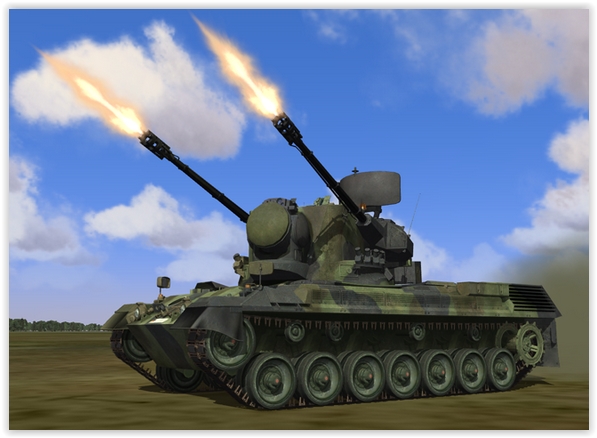
|
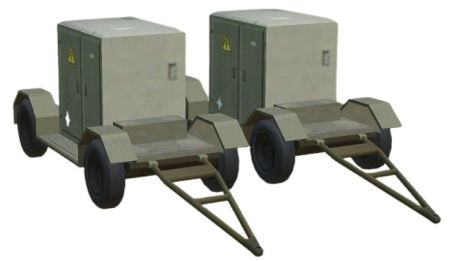
|
Self-Propelled Anti-Air Gun - Gepards are a 2 crate unit but far more effective, these will provide some decent AAA cover up close. |
HAWK
Roland
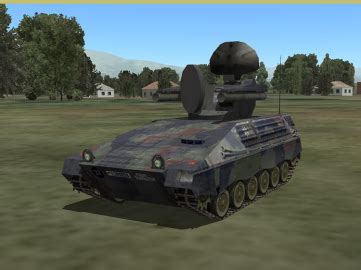
|
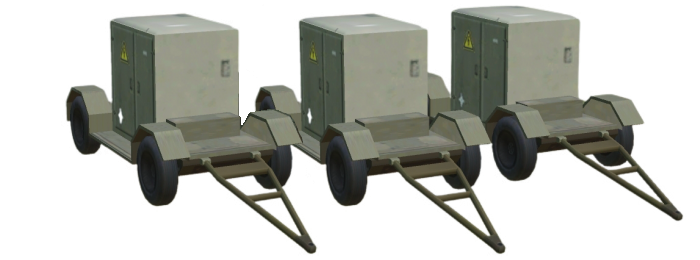
|
Vulcans are cheap & cheerful single crate units, they have a limited range however, but are fun to watch operating. |
Non-Radar Emitters
HAWK Sites
- HAWK sites need 4 unique crates and each crate of the HAWK site will span its corresponding structure when unpacked.
- Crates must be within ~0.25nmi (460m) to count towards the same site, and there is a limit of 20 operable HAWK sites.
- An inoperable HAWK site will not count towards the limit and can be replaced if a HAWK site is set up elsewhere.
Strategies
Placement considerations
- The Track Radar and Search Radar attract anti-radiation missiles so they should be placed away from other HAWK components, other units, or player spawn points to avoid collateral damage.
(HAWK launchers don't friendly fire, so they're are just a harmless nuisance if accidentally put too close to a runway or a landing pad.
Even if a HAWK site is inoperable, it will respawn with full health after a server restart if at least one component of it still exists.
It is recommended to space out the crates of a HAWK site so that an anti-radiation missile does not take out the whole site in one hit.
In fact, since there's a 60 second cool down time between requesting crates, and you're hovering anyway to pick it up there's no good reason to cluster crates together. You might as well fly a little ways out.
Ideally, you are finished dropping a crate by the time you are ready to request a new one.
In short, one needs to keep the following things in mind when setting up a HAWK site:
- The track and search radar attract anti-radiation missiles and need to be placed with the most consideration
- Crates should be spaced out to maximize the chances that at least one HAWK component survives a until server restart
- There is a 60 second cool down time between requesting crates
- The crates spawn 50m in front of the player.
deploying crates / unit placement
Don't just dump all the crates on top of each other this will create a volatile target that when impacted will destroy most if not all the components rather than a single entity like a track radar/search radar system, these are the 'missle magnets'.
HAWK system layout
When unpacking the crates, try placing them as far apart as possible(allowable)
which from ciribobs readme; "To build a HAWK (or BUK) AA system you will need to slingload all 3 parts - Launcher, Track Radar and Search Radar - and drop the crates within 100m of each other."
Note: there are 4 crates to the HAWK system:
All 4 components crates must be placed before the HAWK system can be deployed. Take some care in the placement of each component to make the most of a high (effort) cost system
Technique #1 (HAWK spacing) - Judging distance using aircraft length
100m = ~5 huey lengths / ~4 mi-8 lengths
if you place the crates too far apart, they will NOT deploy so you will have to move them a bit closer,
this might require a little trial & error, but better to have them well spaced out than on top of each other.
Technique #2 (HAWK spacing) - Leap Frogging Setup
There are several reasons why you need to fly forward, and this method combines that with crate spawning behavior to space out a HAWK site with as little effort as possible. A player will get a feel for how far enough they should be. Go with the flow.
In the F10 map draw a 0.25nmi (460m) line as a guide. Spacing 4 crates along this line meets the criteria mentioned terms of minimum spacing, time eaten up, and placement. An anti-radiation missile that destroys one antenna should leave the others alive if not completely unscathed. To remember which way to face, set your heading indicator or pick a distant landmark to keep facing. This line could be oriented perpendicular to the direction enemies are most likely to come from. Otherwise a missile can overshoot an antenna and hit something along the line. It would also allow planes to strafe down the line of units without deviating from the way they already came from.
When you find a spot to start:
- Land and request a HAWK Launcher crate.
- Do a rolling takeoff, and hover to pick it up.
- Do a rolling landing, stop, and drop the crate.
- Do a rolling takeoff, or "leap" over the launcher crate in front of you, and then do a rolling landing. If you had requested the crate right away, CTLD would not know which crate you'd want to pick up when they're clipped into each other.
- Request a HAWK PCP. Notice that the crate is 50m in front of you. Then take into account how much distance you gained from the crate behind you by doing a rolling landing. Even if there is still a cool down, most of it is gone because you were busy flying and adding some space between the crates.
- Takeoff and pickup the PCP crate
- Do a rolling landing and drop the HAWK PCP crate. A rolling landing is natural because it avoids vortex ring state while descending fast. This also avoids tail strikes from trying to pitching up. This process adds even more displacement.
- Hop over the PCP and do the same with the Track radar and then the Search radar.
- Using the unpack command once will replace all the crates with their respective unit.
Bonus: Spawn a M-818 crate and fly back to set it up near the launcher.
Air Defence Systems (ADS)
On hoggit servers (in DCS), when placing Air Defence Systems (ADS), try not to bunch the units up this ensures that if any SEAD action occurs, you're only likely to lose a single unit/entity & not 1/2 dozen units
Some units are only single crate & can quickly be replaced, however these single crate units are usually the less effective (hence 'cheaper') units with shorter ranges or lower hit ratios.
Units that require 2, 3 & 4 crates to assemble provide more optimal cover & nominally more effective use of your time & effort to set up.
Note: Please keep in mind that the techniques outlined below are not real-world methods, but adaptations for DCS world the methods used have been developed or adopted from personal experience or mentoring by others whom have learnt the hard way on what works & what doesn't. Take it with a grain of salt. This is what works has been determined to do so consistantly.
Priorities
The priority when working on air defences are very straight forward:
- your own aicraft safety first,
- then the asset (airfield/FARP)
- then providing a safety umbrella for friendly air units
hence the priority of work normally undertaken should be something similar to this
- Anti- Air troops, scatter them about at the extremities of your area of work or in a line along your ingress/egress routes
- Chapparal, nearby the FOB (green smoke) - single crate IR (no radar) & better range than crappy avenger (stingers)
- Vulcan, nearby the FOB (green smoke) - single crate good AA for close AD
- Hawk system
- Ammo truck (you should have been placing these first few items with the positioning of your first ammo truck in mind
- Roland
- Gepard
playing with "DCS-isms"
One mans "strategies" are another mans "cheats"
- some trees are collidable
- SEAD targets the radar emitters (anti-radiation missiles)
- DSC doesnt obscure radar detection through trees....
which leads us to:
Tactical HAWK radar placement strategies in DCS
Place your hawk site to maximise its footprint to reduce/limit unit damage.
Orientate the hawk site so that the radar systems are close to/hard up against a tree line/forest.
PCP & lunchers can be exposed in open ground (launchers will need clearance of obstacles).
Roland Placement to support HAWK sites
Rolands are effective defence against Kh-58U but not so the kh-25PMU, (Gee a tunguska would be nice to have.....) however they are more effective when placed correctly
When placed together & against multiple launchers, they will both fire on the first inbound missile but neither will fire on the second...
Optimal placement of rolands in combination with an established hawk site should provide:
1x roland slightly to the rear (~1km)
With another (remote ADS site including at least) 1x roland well forward of the hawk site (~4km)
It has been found that these ADS/AAA units placed in supporting these positions with 2 of each type as a template are very effective remote Air Defence System.;
- 2x Roland
- 2x Gepard
- 2x Chaparral
- 1x Ammo truck
(start with 1x of each then keep adding to it to complete a set).
These remotely located ADS sites will require their own ammo truck in order to provide continuous support as per the radar strategy for the HAWK sites, it is possible to position the Rolands & Gepards with some cover from treelines or forests to potenitally minimize effectiveness of the AI's SEAD oeprations. (don't get too close though as the Roland wont be able to launch adequately)
SAM Ring
Using the leap frogging technique for spacing, several HAWK sites can be centered on one M-818 truck. The outer ring of radar emitters spreads out anti-radiation missile impacts, and a player can sit in the middle tending to the sites with HAWK repair crates in safety.
HAWK Maintenance
Repair
- A damaged or dead component cannot be repaired individually with a similar crate.
- Instead the whole site is repaired by unpacking one HAWK repair crate next to it.
- This will also rearm the HAWK site.
Rearming
- A HAWK Launcher can be manually rearmed by unpacking a HAWK Launcher crate nearby.
- At least one M-818 Ammo Truck has to be nearby to automatically rearm the HAWK launchers.
- Although behavior is inconsistent, one truck should be able to rearm several HAWK sites, but no one has determined if multiple trucks speed up rearming.
Suuply Truck
These ADS sytems dont run on 'Hollywood magazines' (but the ammo trucks do) each SAM/AAA will run out of ordinace at some point, unless an ammo truck is placed in proximity enough to enable resupply
Note how the singular ammo truck, can support the adequately spaced HAWK site as well as surrounding Chaparral, Roland & Gepard systems all well spaced to prevent colatteral unit damage
Other Strategies Regarding Placement and Flying
Strategies involving unit placement are a trade off between line of sight and cover, or offense and defense.
- A HAWK site on high ground gives enemy aircraft little opportunity to occlude line of sight, but is the radars are naked to anti-radiation missiles.
- A Gepard among buildings or trees is protected from long range anti-radiation missiles, and the enemy is forced to attack from above and in range.
Using these strategies requires a pilot to know their helicopter well.
- It is easy to strike a rotor on wires, poles, and tight passages.
- If the pilot enters vortex ring state, there may be no room to recover.
Crates can be dropped directly below during a hover, and this can be used to place a crate on top of a buildings like skyscrapers.
- Landing on the ground is close enough to unpack the crate.
- An alternative method is to land right up to a building and drop the crate.
- The crate will clip through and spawn inside the building.
Unpacking it snaps its position onto the roof directly on top of it.
If the crate is not far enough inside the building, the vehicle will spawn on the wall like a spider before updating its position down on the ground.
Because the crates spawn 50m in front of the helicopter, one can land right up against a tree line to bury a unit within.
Although the crate can be dropped from above, the player would still need to be able to land nearby to unpack it.
This is useful for hiding Gepards and Avengers inside of trees.
Similarly, a line of trees or buildings prevents planes from being able to see AA until they are directly over it and vulnerable unable to fire back.
Forward Operating Base (FOB)
Three small crates are needed to build a FOB which creates a zone granting access to all of CTLDs features, but is marked with a mortar.
- It is not a FARP, and is not persistent across server restarts.
- This is a powerful mechanics if enough players are available.
For example, players can fly out 20 minutes and setup a FOB.
- The return on this investment is being able to operate from the FOB for crates to build multiple HAWK sites using multiple short trips.
- Without the FOB feature, they would have to make repeat the 20 minute trips to complete several HAWK sites far from a CTLD zone.
Wind Direction
Watch the smoke in game, industrial smoke stacks, house chimneys, FOB's & smoke grenades.
These will all provide suitable wind direction indicators - use them.
You should always attempt to land into wind in a helicopter especially in an mi8
(which has a tendancy to fall out of the sky on approach if you so much as change your mind)
So keep a mental note on the wind direction & fly your approaches & departures accordingly.
Smoke grenades
Smoke grenades have a relatively short life span, keep this in mind when placing units at a distance away from your FOB, you may want to drop a smoke grenade prior to returning to the FOB to make it easier to return again.
When you return to the FOB & once landed (into wind) turn back towards the smoke signal to re-orientate & pick out a landmark &/or set your compass carrot, in case the smoke expires whilst you're busy aquiring your next cargo to haul.
When flying out away from you base - set your compass carrot to simplify your return route navigation. (compass carrot will allow you to fly out & return via a reciprocal heading, much easier/quicker than smoke & if you have voice attack too, it's too easy to just say "drop <colour> smoke" even whilst your picking up).
Note: remember when flying the Huey to always check your RMI to your standby compass, unlike the Mi8, it has to be aligned manually, if you do not check this beforehand, you might end up "geographically embarassed".
Struts Tutorial
https://www.slideshare.net/Strut1/operation-of-the-diss-15-doppler
Mudspike Tutorial
HOW TO USE THE DOPPLER NAVIGATOR IN DCS: MI-8MTV2
https://www.mudspike.com/how-to-use-the-doppler-navigator-in-dcs-mi-8mtv2/
DCS Ruler
- select ruler form menu bar
- zoom the map in to as close to your aircraft as possible (or from a designated landmark you intend to depart from /flyover
- right click to set start point
- zoom out to locate destination
- then zoom into destination as close as possible and place cursor over destination (LZ)
- right click to select destination
- look at menu bar to obtain direction (GRID) and distance
Magnetic Variation
Grid(from the F10 map) to Magnetic(aircraft compass)
Depending on the map you are flying, the magnetic variation will be different;
- Caucasus; subtract 6 degrees to convert from Grid to Magnetic
- e.g. set your heading carat to the heading (F10 map bearing less 6 degress for magnetic variation)
- Nevada; subtract 12 degrees to convert from Grid to Magnetic
- e.g. set your heading carat to the heading (F10 map bearing less 12 degress for magnetic variation)
- Persion Gulf: subtract 2 degrees to convert from Grid to Magnetic
- e.g. set your heading carat to the heading (F10 map bearing less 2 degress for magnetic variation)
Time / Distance Calculation
based on estimated cruise speed, determine time to target:
Time = Distance / Velocity x 60
Note: there is an excellent function in Voice Attack that allows you to perform instant Time/Distance Calculations
if in Mi8- use Doppler(co-pilot panel)
- set heading
- set distance Aft (to provide a countdown to zero as you approach the destination)
- enable doppler once overhead start point
- fly smooth and level as much as possible to avoid doppler failure which could result in navigation inaccuracies
Note: Doppler instrument panel lighting is located behind the co-pilot and is accessible from the flight engineers seat (3)
Radio beacons
Radio beacons are better used when performing longer distance unit placement (beyond directly visible / line of sight) this will require you to be familiar with your radios in order to set the frequency for homing. definitely worth it though when trying to navigate whilst under constant air threats. its all too easy to get turned around whilst evading & if your not super famililiar with the area you're flying in, you'll get lost & probably have to land to F10 map your way out of it/back to base.
Ground Units
Troop Transport
Ammo Trucks
Make sure to consider the placement of your ground units in proximity to a supply truck to avoid running out or ammo.
If a supply truck or ground unit is out of range of each other, a CA user in a JTAC slot can occupy & relocate either the ground unit or supply truck (whichever is most optimal) to achieve maximum coverage.
Combined Arms / JTAC
The JTAC positions in the server lobby will allow players to participate by taking over ground units such as artillery, SAMs & AAA, or tanks & other vehicles.
Provided of course that they have the Combined Arms module installed.
This will allow CA players to occupy ground units, take on otehr enemy ground (&/or air) units, & sieze/capture objectives (Airfields & FARPs).
Armour
CA players can occupy artillery units such as the M1A1 Abrams & create a collosal amount of carnage to enemy ground units of all description.
Even to the odd aircraft if its low & slow enough. (as well as silly enough to pass in front of the 120mm cannon).
Artillery
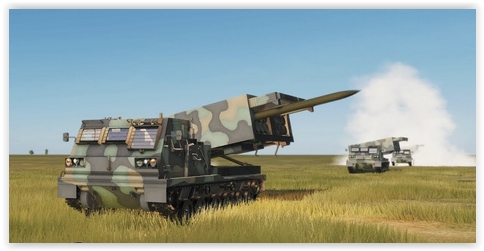
|

|
CA players can occupy artillery units such as the MLRS & rain down a world of hurt on static AI ground units from a distance...
without so much as risking a grazed elbow. |

